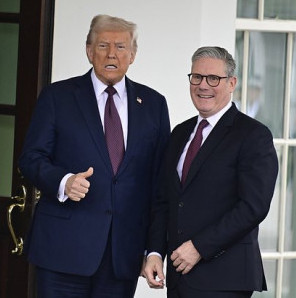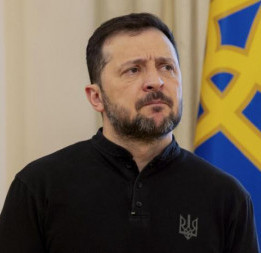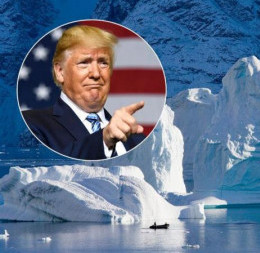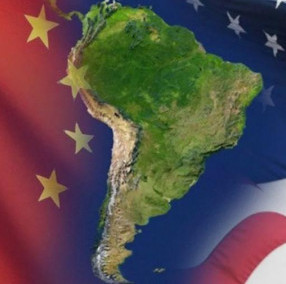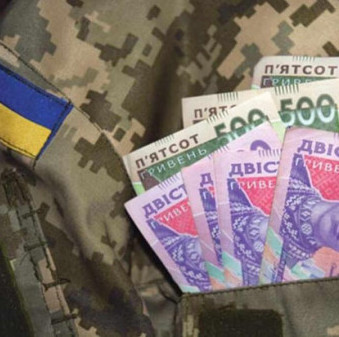In the middle of the week, EU leaders gathered at the Brdo Castle in Slovenia to meet with their counterparts from the six Balkan states claiming European integration. The meeting yielded a declaration where the European Union once again confirmed its desire to expand into the Balkans, though without any specific promises on its part. Until this expansion happens, Brussels will keep integrating the region's countries "informally" by boosting cooperation in a variety of areas: from defense and security to renewable energy and combating the pandemic, while keeping track of the economy either.
The Brdo summit featured other issues apart from the Balkan one. The last EU leaders' meeting was in late June, and now they seized the opportunity to discuss the latest world events in their close circle. It was primarily about Afghanistan and the US-British-Australian AUKUS agreement, or rather about conclusions to be made by the EU in this regard and how to build further relations with the US and China.
The key issue in this regard is the so-called "strategic autonomy" of the European Union, i.e. its ability to solve major security and defense challenges, and ultimately assume the role of an independent global player. After the Kabul airport evacuation, which proved not the most successful European operation, many EU countries' need for this autonomy became more than obvious. And a few weeks later, Washington, by signing AUKUS with London and Canberra, showed the Europeans that as long as they don't amount to much in world politics, no one particularly intends to reckon with them in key matters.
The Americans tried to alleviate the situation a little, primarily with France, whom AUKUS cost a multibillion-dollar submarine construction contract for Australia. Following a telephone conversation between the two countries' presidents on September 22, Joseph Biden, among other things, pledged more support for the fight against terrorism in the Sahel, while Emmanuel Macron promised to send the French ambassador back to Washington. At the same time, the Americans spent the past few days assuring Europe – particularly France – of greatly appreciating their defense efforts, as well as the involvement in the Indo-Pacific affairs.
Whether Paris believed these assurances or not, is not yet entirely clear. At a press conference in Brdo, Macron said he only believes the facts and pointed to the upcoming meeting with the American president at the G20 summit. However, France is now hardly interested in promptly settling the conflict, and not just because it wants concession from the United States. Paris has long been trying to get the European Union accelerate defense integration, intending to exploit the common defense potential to benefit its own foreign policy ambitions. And the current situation, according to the French, is a good reason to achieve the agenda.
According to European media reports about the meeting in the Slovenian castle, even some of the eastern EU countries that had been previously skeptical about this idea, showed interest in strategic autonomy. After AUKUS, it became finally clear that the key US foreign policy interests are associated with the Indo-Pacific region, and for Eastern Europeans there is good reason to think about whom they will rely on further in terms of security guarantees. At the same time, many Western EU countries have already pondered this, which, along with other things, provides a chance to activate a unified European defense policy, which Paris is so eager to take advantage of.
Besides, January will see France become chairman of the EU Council, and Germany is undergoing a power shift, which provided Paris with an opportunity to promote its own vision of how this unified defense policy should look like. Macron has already said that strategic autonomy will be a key issue of the French chairmanship in the first half of 2022.
However, the desire for strategic autonomy, even the French one, does not mean breaking off with the United States or abandoning NATO. In this way, the issue is unlikely to arise for the European Union even in the long term. By autonomy, the Europeans primarily understand the ability to independently carry out operations where the Americans do not want or cannot help them – for instance, like the same Kabul evacuation or military operations in Africa. They will also get a chance to raise their status in the eyes of Washington, so that it starts factoring them while making crucial decisions. President of the European Council Charles Michel, following the discussion in Brdo, declared his commitment to cooperation with the like-minded allies and partners, particularly the United States and NATO.
However, the issue of relations with China remain unclear. According to Michel, China remains the European Union's competitor, partner and systemic rival all at once. However, the most vital cooperation aspect the United States now wants from its allies is support in the Indo-Pacific region, where things are heating up gradually. And here the Europeans need to decide whether they are ready to get involved in a serious conflict with China or will try to stay away.
